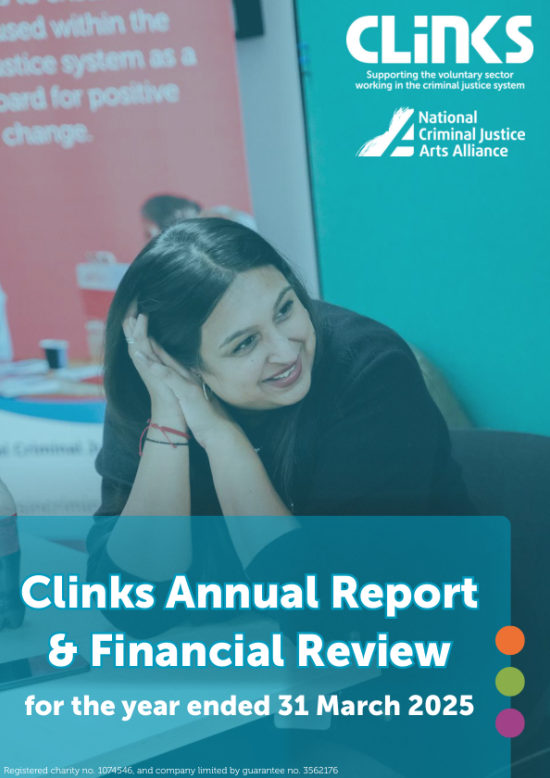Today Her Majesty’s Prison and Probation Service (HMPPS) published a target operating model for probation. It gives an update on the latest developments in the design of the future probation model which is anticipated to be fully operational from 2022.
Broadly the model design outlined in the target operating model is in line with what has been shared by HMPPS previously in the Draft Operating Blueprint and through market engagement information. There are, however, some important updates to the detail and in the coming week we’ll publish a full briefing with more in-depth analysis of the target operating model and its implications for the voluntary sector. We will also provide feedback on these implications to HMPPS and advocate for them to be taken into account as the model develops further.
In this blog I outline some of the new and welcome things to look out for in the target operating model as well as a brief overview of some of our ongoing concerns, which our forthcoming briefing will provide further analysis of.
Language
The target operating model marks a welcome shift in the language the government uses to describe people under probation supervision. ‘Offender managers,’ as they were previously known, are now referred to as ‘probation practitioners’ who provide ‘sentence management’ rather than ‘offender management’. Those under probation supervision are referred to as individuals or people.
We’re really pleased to see that HMPPS have taken this opportunity to review the language it uses, so as not to label and stigmatise people as ‘offenders’. This more closely aligns with the voluntary sector’s values and we hope this is the start of a wider shift in the department’s approach to people in the criminal justice system.
Business planning
Clinks has recommended to HMPPS that an overarching, national strategy should be developed for the National Probation Service (NPS) from which each regional NPS area should develop local strategic plans. This would ensure a balance of local responsivity with national priorities and make commissioning intentions clear and transparent.
We are pleased to see the target operating model outline that each NPS area will implement an ongoing business planning cycle that assesses service need and service provision and supports commissioning and decision-making by regional NPS leadership. The business planning cycle consists of four phases: assess; co-design and commission; deliver; and review.
We really welcome that as part of this cycle, regional NPS leadership will be expected to co-design and review services with stakeholders. This will support probation to be more responsive to changing local needs and encourage more joined up working. We are encouraging HMPPS to specifically name the voluntary sector as a stakeholder in this context to make sure that the sector is recognised as more than just a delivery partner. We’ve recommended the same for service users.
The business cycle will culminate in annual published plans for each NPS area which will help improve transparency to delivery organisations and other relevant stakeholders.
Grants
Clinks has had ongoing concerns throughout the development of the new probation model about the lack of attention paid to grants. With such a heavy focus on contracts we’ve been concerned that this would lead to the creation of model that isn’t suitable for grant making which would in turn present a significant barrier to the involvement of small and specialist organisations.
A lack of grant funding has been one of the key reasons why involvement of the voluntary sector, particularly smaller ones, has been so limited in the current probation model, so it’s really important in the new system that this is addressed.
This is why we are pleased to see the target operating model make reference to the fact that commissioners will be able to award both contracts and grants via the Dynamic Framework. Commissioners will be given Dynamic Framework procurement documentation that has criteria to support them in determining whether grants or contracts are the most appropriate approach.
We are keen to support HMPPS to further develop the detail of this commitment in order for grants to be better utilised in the future of probation and to support greater involvement of small voluntary organisations.
Equalities
There will be dedicated equalities manager post in each NPS division. We hope it will be a sufficiently senior level to demonstrate a real commitment from probation to deliver on its Public Sector Equality Duty and make meaningful improvements to disparities in the criminal justice system.
The regional probation directors for each NPS division have overarching responsibility for the relevant recommendations of the Lammy Review. The Lammy Review recommendations however were written for the current probation model. The technicality of them will not apply to the new system. We hope the plans for the new model will be updated to require probation to take responsibility for implementing the spirit of the Lammy review and not limit its work on addressing racial disparity to those specific recommendations.
Similarly the intentions for regional probation directors to take responsibility for delivering the Female Offender Strategy are not without issue. There is insufficient detail about how the new probation model will meet the specific needs of women in the criminal justice system and which aspects of the strategy it will support. Most importantly there is still no information from the Ministry of Justice on what further investment will be made to support the strategy. If the only investment is from the new probation model, the intentions of the strategy will not be achieved.
Ongoing areas of concern
Much of the target operating model confirms developments that HMPPS have been sharing in previous publications and via its market engagement webinars and updates. There are a number of areas we continue to have concerns about:
- Pre-sentence reports – there appears to be a lack of progress made with HM Courts and Tribunal Service on this issue. We are concerned not to see a stronger commitment on reducing the percentage of fast, oral pre-sentence reports.
- The Dynamic Framework – the proposed model is too complex and contract-focused to fully support voluntary sector involvement, especially for small organisations.
- Commissioning of day one services – we are concerned about the impact on the availability of services led by and for people from black, Asian and minority ethnic (BAME) people because they are not being considered for commissioning specifically for day one of the new model.
- The new resettlement model – we have concerns about the practicalities of community-based probation practitioners reaching in to support every person in prison for up to 10 months and being responsible for co-ordinating activities in prison.
- Transition planning - there has not been enough attention paid to the impact of transition on current voluntary sector providers and the knock on effect this will have on continuity for service users and the available market of providers for the future model.
Our forthcoming briefing will provide a full analysis of these.
What next?
We appreciate the probation reform programme is moving at speed and things are in a constant state of development. It can be time consuming to keep on top of it all, so Clinks will continue to support the voluntary sector to stay updated on the key information. Make sure you keep an eye on Twitter, Light Lunch and our dedicated page on probation.
Look out for a briefing this week which will provide much more information and analysis on the proposals so far for the new probation model.
What's new
Blogs
Anne Fox CEO of Clinks to stand down after a decade of service
Latest on X
The role is for a leader from an organisation focused on racially minoritised people, with expertise in service delivery, policy, advocacy, or related areas in criminal justice. Racial disparities are present at every CJS stage. This role ensures these voices are central in shaping policy to help address and eradicate them. Apply by Mon 18 Nov, 10am. More info: https://www.clinks.org/voluntary-community-sector/vacancies/15566 #CriminalJustice #RR3 #RacialEquity

